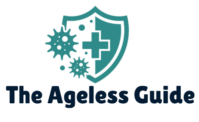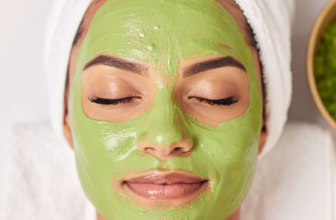
Aging is a natural part of life. Everyone grows older every day. But how we age can change a lot. One big factor is nutrition. What we eat can help us feel better and live longer. This article explains how nutrition affects aging. It also gives easy tips for healthy eating at every age.
See our expert reviews of the best Supplements for Joint Pain in Aging.
Why Nutrition Matters as We Age
Our bodies change as we grow older. Muscles can get weaker. Bones may become fragile. The skin can lose its glow. Sometimes, memory may not be as sharp as before. Good nutrition helps slow down these changes. It also helps keep our energy high. Eating right can protect us from diseases too.
Many older adults face health problems like heart disease, diabetes, and arthritis. Eating healthy foods can lower the risk of these problems. Nutrition is not just about food. It is about keeping our body strong and healthy.
Our complete guide to The Importance of Regular Health Checkups for Healthy Aging is right here.
Key Nutrients for Healthy Aging
Some nutrients are very important for older people. Let’s look at the main ones.
| Nutrient | Why It Is Important | Food Sources |
|---|---|---|
| Protein | Builds and repairs muscles and tissues | Meat, eggs, beans, nuts, dairy |
| Calcium | Strengthens bones and teeth | Milk, cheese, yogurt, leafy greens |
| Vitamin D | Helps absorb calcium for strong bones | Sunlight, fish, fortified milk |
| Fiber | Keeps digestion healthy and prevents constipation | Fruits, vegetables, whole grains |
| Antioxidants | Protects cells from damage and aging | Fruits, vegetables, nuts, seeds |
| Water | Keeps the body hydrated and supports all functions |
Water, soups, fruits, vegetables |
How Nutrition Affects the Body’s Aging Process
Nutrition influences many parts of the body. Here is how it helps:
- Skin Health: Eating vitamins and antioxidants helps keep skin soft and smooth. It may reduce wrinkles.
- Bone Strength: Calcium and vitamin D keep bones strong. This lowers the chance of breaks.
- Muscle Maintenance: Protein helps maintain muscle mass. Strong muscles help us move easily.
- Brain Function: Healthy fats and vitamins support memory and thinking skills.
- Heart Health: Good fats and fiber reduce bad cholesterol. This protects the heart.
- Immune System: Nutrients like vitamins A, C, and E help the body fight infections.
Looking for the best? Start with our top picks for Best Resistance Bands for Seniors to Boost Strength and Mobility.
Common Nutrition Challenges in Older Adults
As people age, they may face some problems with nutrition. These include:
- Less hunger or appetite
- Difficulty chewing or swallowing
- Changes in taste and smell
- Medication side effects
- Limited income or access to food
- Loneliness or depression affecting eating habits
It is important to find ways to overcome these challenges. Eating well can still be possible and enjoyable.
Tips for Healthy Eating as You Age
Here are some simple tips to keep nutrition strong in older age:
- Eat More Fruits and Vegetables: They are full of vitamins and fiber.
- Choose Whole Grains: Brown rice, whole wheat bread, and oats are better than white versions.
- Include Protein: Add meat, fish, eggs, beans, or nuts to meals.
- Drink Plenty of Water: Stay hydrated throughout the day.
- Limit Salt and Sugar: Too much can harm heart and teeth.
- Eat Small, Frequent Meals: This helps if appetite is low.
- Enjoy Meals with Others: Eating with friends or family can make food more fun.
- Check with a Doctor: Some people may need vitamin or mineral supplements.
See our expert reviews of the best Best Products for an Anti-Aging Lifestyle to Revive Youthful Skin.

Credit: www.comfortkeepers.com
The Role of Antioxidants in Slowing Aging
Antioxidants are special nutrients. They protect our cells from damage. This damage can speed up aging. Antioxidants fight harmful molecules called free radicals.
Foods rich in antioxidants include berries, carrots, spinach, and nuts. Eating these foods can help keep the body young and healthy longer.
Importance of Hydration in Aging
Water is very important. Older adults often feel less thirsty. But the body still needs water. Water helps digestion, temperature control, and joint health.
Dehydration can cause tiredness, confusion, and other problems. Drinking water, herbal tea, and eating watery fruits like watermelon help stay hydrated.
Before you go, see our recommendations for Under Desk Elliptical Machine for Seniors – Quiet Portable Seated Pedal Exerciser with Remote Control & 12 Adjustable Resistance Levels.

Nutrition and Mental Health in Older Age
Good nutrition also helps the brain. Certain vitamins support memory and mood. Omega-3 fatty acids from fish are good for the brain.
Poor nutrition can lead to tiredness and sadness. Eating well helps keep the mind sharp and mood positive.
Before you go, see our recommendations for Wrinkle And Fine Lines Cream: Top Solutions for Youthful, Radiant Skin.
How to Plan Balanced Meals for Older Adults
A balanced meal has a mix of nutrients. Here is a simple plate guide:
- Half the plate: Fruits and vegetables
- One quarter: Protein (meat, beans, fish)
- One quarter: Whole grains (brown rice, whole wheat bread)
- Small amount: Healthy fats (olive oil, nuts)
This balance helps get all needed nutrients. It also keeps blood sugar steady.
See our expert reviews of the best Lightweight Dumbbells for Seniors.
Common Myths About Nutrition and Aging

Many myths exist about food and aging. Here are some truths:
- Myth: Older people need less food. Truth: They need just as much nutrition, sometimes more.
- Myth: Supplements can replace food. Truth: Food is best source of nutrients.
- Myth: It’s too late to change diet. Truth: Good eating helps at any age.
Our complete guide to Facial Massagers for Skin Tightening: Top Devices for Youthful Glow is right here.
Frequently Asked Questions
How Does Nutrition Affect The Aging Process?
Good nutrition helps keep the body strong and slows down signs of aging.
Which Nutrients Are Best For Healthy Aging?
Vitamins D, B12, calcium, and antioxidants support bones, brain, and skin health.
Can Diet Improve Memory In Older Adults?
Yes, foods rich in omega-3 and antioxidants can boost brain function.
How Does Protein Intake Impact Muscle Loss With Age?
Protein helps maintain muscle mass and strength as the body gets older.
See our expert reviews of the best Brain Supplements for Memory And Focus.
Conclusion

Nutrition plays a big role in how we age. Eating healthy foods helps us stay strong, smart, and happy. It slows down problems like weak bones, memory loss, and tiredness.
Simple changes in eating can make a big difference. Choose fruits, vegetables, whole grains, proteins, and drink water. Avoid too much salt, sugar, and unhealthy fats.
Remember, it is never too late to start eating well. Good nutrition helps us enjoy life at every age.
Don’t buy Collagen Supplements before reading this guide.






